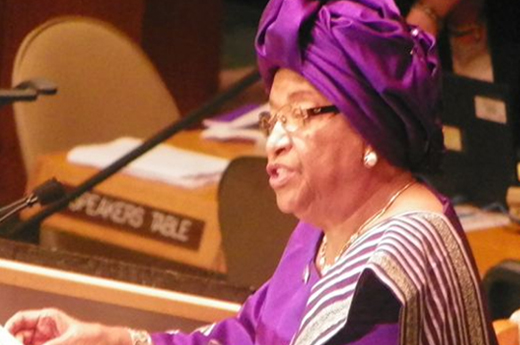Liberian President Ellen Johnson Sirleaf addresses the 67th session of the UN General Assembly
Liberian President Ellen Johnson Sirleaf said $260 billion in economic losses annually is directly linked to inadequate water supply and sanitation around the world.
She made the comment Wednesday in Monrovia at the start of a three-day U.N. high-level Panel of Eminent Persons meeting.
The group is tasked with producing a report in May this year for U.N. Secretary-General Ban Ki-Moon with recommendations for a post-2015 global development agenda.
WaterAid, the leading charity for clean, safe water and sanitation in the world’s poorest countries said last year that 2.5 million people around the world would be saved every year if everybody had access to safe water and adequate sanitation.
Nelson Gomonda, the Pan-Africa Program manager for WaterAid, said President Sirleaf’s comments added new impetus to the crisis.
"We believe that coming from the president of Liberia and also as the Goodwill Ambassador for Water and Sanitation in Africa is a good sign that we are beginning to make the High-Level Panel members and also at the highest political level in Africa realize that we don’t have to pay a blind eye to the water and sanitation crisis that we have, which, if we don’t address may have severe impact on the development agenda of Africa," he said.
WaterAid said in a press release that the current Millennium Development Goal targets on water and sanitation have had differing levels of progress and political and financial support.
Butty interview with Gomonda
It said while the drinking water target was met five years early in 2010, the sanitation goal is decades off track. WaterAid said progress in Africa is specifically worse, with sub-Saharan Africa expected to meet the sanitation goal a century and a half late.
Gomonda said governments need to increase their investments in water and sanitation because the two areas are essential to global economic development.
"What needs to be done is to make sure that African governments are able to meet the commitments that they have made and making sure that resources and domestic allocations to sanitation are increased and are matching with the commitments that they made at their various summits that they have had, particularly during the summit of the international year of sanitation in 2008," Gomonda said.
This is a post from VOA.








